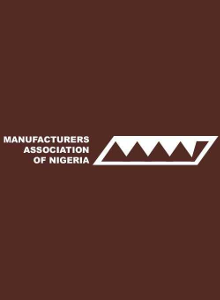Find Industry and Manufacturing expertise in Nigeria
- Manufacturing sector
- National bodies
According to the Business, Trade and Investment Guide of 2010/2011, manufacturing contributed 4.2% of GDP in 2009, up from 3.6% in 2008. In general the sector’s contribution to GDP has remained fairly consistent during the 2000s. Although some industries attract domestic and international investment, between 2000 and 2010 over 850 manufacturing companies either shut down or temporarily halted production. With capacity utilisation in manufacturing at around 53%, there is plenty of room for expansion. The bulk of FDI generally goes to oil and gas companies. Major manufacturing industries include rubber, wood, textiles, cement and other construction materials, food products, footwear, chemicals, fertiliser, printing, ceramics, steel, and shipbuilding and repair.
Imports of manufactured goods far exceed sales of Nigerian products. Manufactured goods have constituted the biggest category of imports since the 1980s. Rubber processing is a major export-oriented industry, but all other exports are dwarfed by oil and gas, which account for about 90% of export earnings. Manufacturing activity is concentrated in large cities like Lagos, Port Harcourt and Ibadan, in the south of the country.
Under the 1995 Nigerian Investment Promotion Commission Act, 100% foreign ownership is permitted in all industries except for oil and gas, where investment is limited to existing joint ventures or new production-sharing agreements. Investment from both Nigerian and foreign investors is prohibited in a few industries crucial to national security, such as arms production. Investors are allowed to repatriate 100% of profits and dividends.
The government does not intervene directly in the private sector, for instance through the ownership of companies, though it has introduced a number of incentives to promote industry and manufacturing in Nigeria. For instance, tax holidays are available for companies producing for export, and foreign companies can obtain an enhanced exchange rate when they are injecting new equity into a production project that has been approved by the Central Bank of Nigeria (CBN). Government incentives are focused on certain industries, such as those which can source their raw materials locally, those which support food production programmes and those with multiplier effects such as the machine tools industry. Agro-industrial ventures benefit from a five-year tax holiday, an agricultural credit scheme guaranteed by the CBN and other benefits.
Difficulties in the manufacturing industry include the state of physical infrastructure, difficult access to credit, and the cost of imported raw materials and skilled labour. The manufacturing industry as a whole generates most of its own energy needs.
Multinational companies in Nigeria include Unilever Nigeria, Lafarge Cement WAPCO Nigeria Plc and Nampak Metals. Dangote Group, one of the largest industrial conglomerates in West Africa, has its headquarters in Lagos. Its activities include cement production, manufacturing and importing, packaging and distribution. Large domestic manufacturing companies include BAGCO-GROUP, a conglomerate of Nigerian Bag Manufacturing Company Plc, Northern Bag Manufacturing Limited and BagcoMorpack Nigeria Limited.
Manufacturers Association of Nigeria (MAN) is a national industrial association serving and representing around 2000 companies in the public and private sectors in the manufacturing, construction and service industries of the national economy. Membership is voluntary.
Many millions of Nigerian workers from all sectors of the economy belong to the National Labour Congress. The Congress aims to organise, unionise and educate all categories of Nigerian workers, and unite Nigerian workers and people against all forms of exploitation and discrimination.
The Bank of Industry is a prominent long-term industrial financing institution, and assists local and foreign entrepreneurs to establish new industries as well as expand and modernise existing ones.
| Industry and Manufacturing organisations in Nigeria | |
|---|---|
| Cadbury Nigeria |
|
| Manufacturers Association of Nigeria |
|
| Manufacturers Association of Nigeria |
|
| Nestle Nigeria Plc |
|











